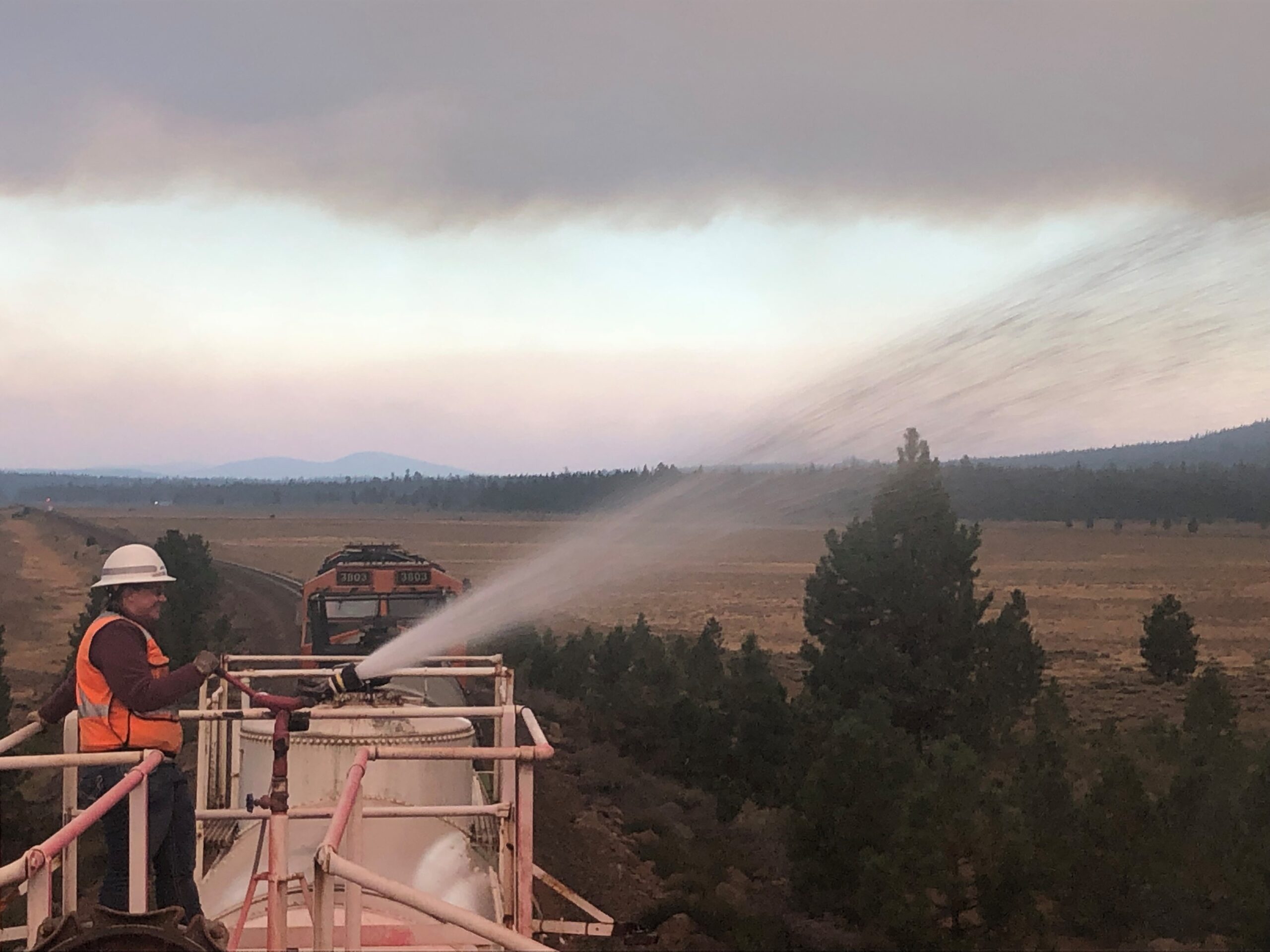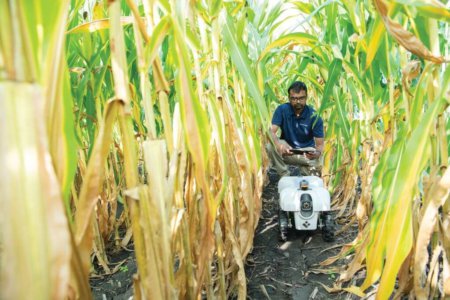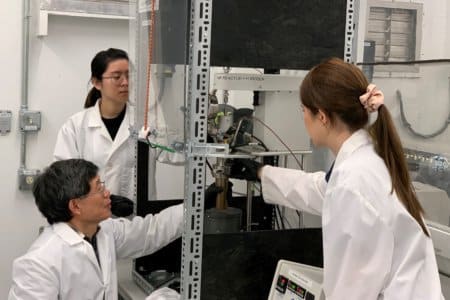Agricultural and Biological Engineering extends far beyond traditional farming – it addresses critical challenges in food security, sustainable energy, and environmental protection. Today’s innovations in these fields rely heavily on engineering, science and mathematics, from developing sustainable energy systems and advancing biotechnology to designing smart machinery and protecting our natural resources. Data-driven insights and engineering principles are revolutionising how we address global challenges while ensuring sustainability.
The University of Illinois Urbana-Champaign’s Department of Agricultural and Biological Engineering (ABE) combines the strengths of two premier colleges: the College of Agricultural, Consumer & Environmental Sciences (ACES) and The Grainger College of Engineering. This collaboration offers students access to world-class expertise, facilities, and networks from both colleges, creating distinctive opportunities for learning and innovation.

ABE’s flexible programmes equip you with the skills to think critically and drive creative innovation. Source: University of Illinois Urbana-Champaign
Programmes creating a more sustainable future
In ABE, students fuse core engineering skills with hands-on training to analyse complex systems that support food production, agriculture, energy, and the environment.
The interdisciplinary collaboration between the Grainger College of Engineering and ACES means you can enjoy six forward-thinking concentrations designed to meet the global challenges and industry needs that often merge several disciplines.
The Agricultural and Biological Engineering major, an ABET-accredited engineering programme, prepares you to design and manage systems that ensure resource security, sustainable agriculture, and healthier indoor and outdoor environments.
In the Bioprocess Engineering & Industrial Biotechnology concentration, you learn to develop systems for processing food, biofuels, and more. Or if designing equipment and control systems for agriculture and construction is what you’re interested in, then you can pick the Off-Highway Vehicle & Equipment Engineering concentration.
In the Renewable Energy Systems Engineering concentration, you’ll design energy systems powered by solar, wind, biological, and geothermal resources. Likewise, you’ll create sustainable systems for managing soil and water, controlling erosion, and improving water quality through the Soil & Water Resources Engineering concentration.
Meanwhile, the Sustainable Ecological & Environmental Systems Engineering concentration focuses on creating and restoring resilient natural and urban environments through automation and environmental controls. And if you’re drawn to cutting-edge biology, Synthetic Biological Engineering is where you get to modify organisms, introducing new abilities that help in food, energy, water, agriculture, and environmental sectors.
Each concentration has a comprehensive computational curriculum, ensuring you develop the technical expertise to address complex, global issues.
“You can learn and develop technologies that make a difference in people’s lives worldwide,” says Associate Professor Girish Chowdhary. “Our programme focuses on training students in agriculture and engineering along with other forms of traditional engineering, building a strong foundation of mathematics and then building it up to algorithm development, robot development, thinking about the systemic effect of the robots and creating new solutions for the growing population.”

Specialised research labs dedicated to emerging technologies offer an immersive experience beyond traditional classroom learning. Source: University of Illinois Urbana-Champaign
Hands-on learning for the real world
Another advantage of joining ABE is the access to resources, expertise, and networks from two premier colleges. Facilities like the Integrated Bioprocessing Research Laboratory (IBRL), a bioprocessing product research and development facility, are key in translating discoveries into commercial bioproducts. Similarly, the Illinois Autonomous Farm is a platform for advancing artificial intelligence (AI) research to boost farm productivity, sustainability, and profitability.
These facilities create an ecosystem where technical knowledge is applied to synthetic biology, digital agriculture, sustainable processing, and waste-to-energy systems. Such exposure will give you the confidence and preparation to apply for jobs in research and industry.
About one-third of ABE graduates go on to graduate school, while around two-thirds enter the industry. Many have established successful careers in environmental engineering, mechanical design, product development, testing and reliability, and many more.
“I think ABE has given me a good chance to have all these opportunities, and I wouldn’t be where I am today without ABE. They’ve given me so many opportunities, and I’m so grateful for them,” says student Daniela Markazi.
Ready to take the next step toward a transformative education? Discover how you can be part of a groundbreaking programme at the University of Illinois Urbana-Champaign.
Follow the University of Illinois Urbana-Champaign on Facebook, Instagram, X, and YouTube, and the Department of Agricultural and Biological Engineering on Facebook and X.













